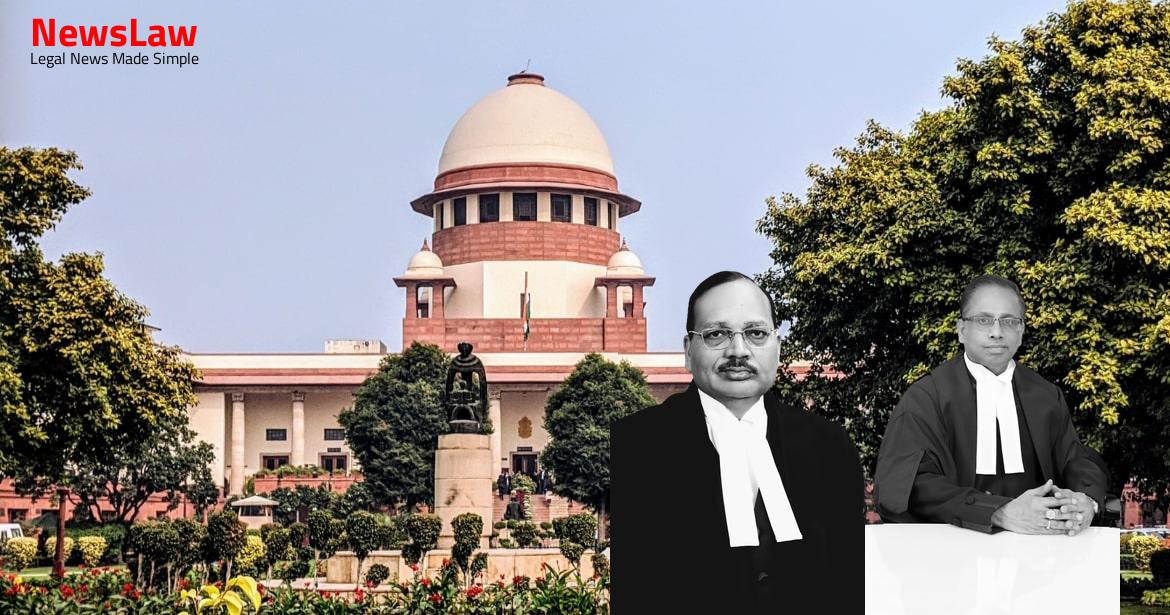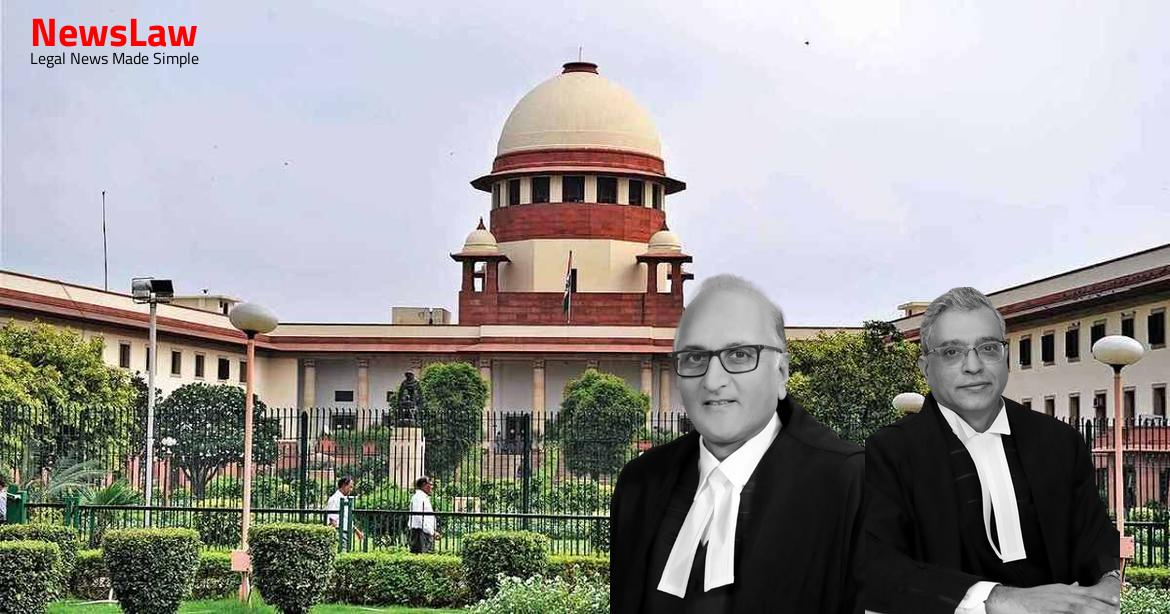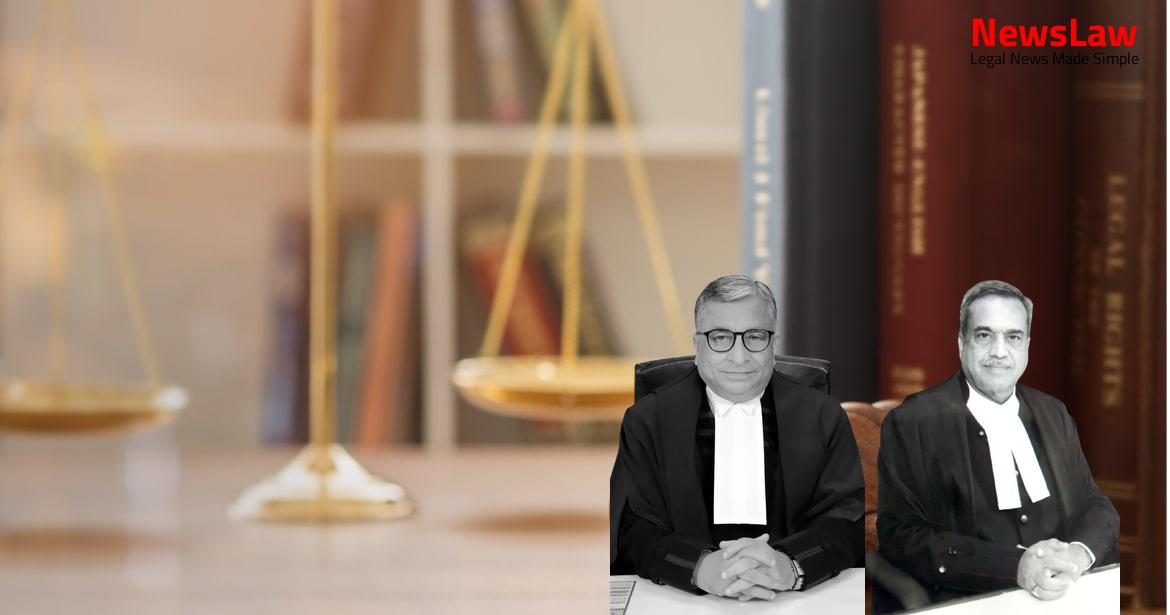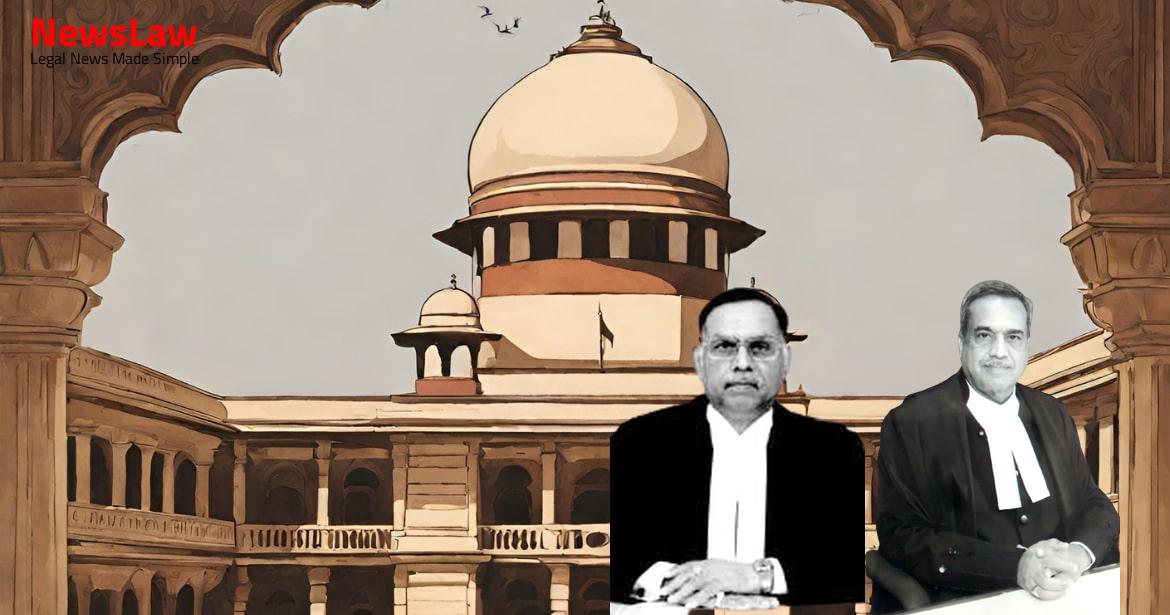In a recent legal case, the Court delves into the complexities of interference with acquittal orders, emphasizing the necessity for caution and valid grounds for intervention. The analysis focuses on the principles guiding appellate review and the responsibility to prevent miscarriages of justice. Follow along as we unravel the intricacies of the Court’s legal reasoning in such matters.
Facts
- The appeals are against the judgment of the High Court allowing Criminal Appeal filed by the respondents and Criminal Revision filed by Harpreet Singh.
- The High Court disbelieved the version of the complainant and his daughter, primarily due to the complainant’s visit to a hospital in Jagraon for a medical checkup.
- The State of Punjab is discontented with the acquittal of the accused and is appealing.
- The High Court stated that if the defence raises a reasonable doubt, the accused must be acquitted.
- FIR registered under Sections 302 and 34 of IPC and Sections 25, 27, 54, and 59 of the Arms Act, 1959.
- Reason for enmity was daughter’s move to Australia after divorce.
- Eyewitnesses identified attackers as Gurpreet Singh armed with a pistol and an unidentified person with a hockey stick fleeing in an Innova car.
- Eyewitnesses include Complainant and his daughter.
- Discrepancies in eyewitness testimonies raise doubts on credibility.
- Co-accused names not disclosed initially, casting further doubt.
- Mystery surrounds nomination of additional accused persons.
- No Test Identification Parade conducted.
- Trial Court found Gurpreet Singh guilty of murder, co-accused guilty under Section 302/34 IPC based on eyewitness accounts.
Also Read: Analysis of Suppression of Information in Employment Selection: Legal Perspective
Issue
- Two questions for consideration in the present appeal are: (i) whether a case is made out for interference by the Court under Article 136, and (ii) whether the acquittal of the Respondents is sustainable.
- If the answer to the first question is affirmative, the second question becomes crucial for determining the sustainability of the acquittal of the Respondents.
Also Read: Analysis of Cheating and Forgery in Passport Case
Arguments
- Mr. Dhama argued that P.W.3, a married girl, attending classes from her paternal home after getting married was unlikely.
- Gurpreet Singh was suspected of having a motive for murder due to his grudge against the deceased.
- The High Court erred in acquitting the accused by disregarding Trial Court findings based on witness statements.
- P.W.3 provided clear identification of the accused as the assailants, both at the police station and in court.
- The defence urged caution in interfering with the acquittal order under Article 136 of the Constitution.
- Neighbours did not witness the crime despite it happening in broad daylight, raising doubts about the prosecution’s case.
- The testimonies of P.W.2 and P.W.3 were questioned by the High Court, as they lacked confidence-inspiring details.
- The Complainant and eyewitness had no motive to falsely implicate innocent persons in the crime.
- Gursewak Singh (P.W.2) and Harmandeep Kaur (P.W.3) immediately alerted authorities upon discovering the deceased.
- The presumption of innocence is restored upon acquittal by the appellate court.
- The Court will exercise great caution and avoid routine interference with an order of acquittal.
- Article 136 of the Constitution is not to be used to routinely tinker with acquittal orders.
- Intervention is warranted if the acquittal is based on irrelevant grounds, distractions, or neglect of vital evidence.
- The responsibility to prevent a miscarriage of justice obligates the Court to intervene when necessary.
- Principles guiding intervention in acquittal orders are outlined in Rajesh Prasad v. State of Bihar.
Also Read: Discrepancy in Date of Birth: Court’s Legal Analysis
Analysis
- The High Court’s rejection of evidence based on suspicion or benefit of doubt is criticized.
- Gurpreet Singh aimed a pistol at Amarjit Kaur, shooting her under the right ear.
- P.W.2 stated unknown persons were with Gurpreet Singh, casting doubt on their credibility.
- The recovery of the pistol from Gurpreet Singh supports the prosecution’s case.
- Close relatives like P.W.2 are unlikely to falsely implicate someone.
- The testimonies of P.W.2 and P.W.3 were crucial but disbelieved by the High Court.
- The immediate police response after the incident was documented.
- The presence of Gurpreet Singh at the scene was corroborated through various testimonies.
- The High Court’s reasoning for acquittal was deemed perverse and incorrect.
- Gurpreet Singh’s motive for the crime was linked to his thwarted plans due to the divorce from Kirandeep Kaur.
- The undisputed presence of key witnesses and the recovery of the weapon of crime support the prosecution’s case.
- In the incident of Thoti Manohar v. State Of Andhra Pradesh, family members and close relatives become witnesses when the incident occurs partly within the house.
- Prompt lodging of an FIR helps dispel suspicions and adds credibility to the prosecution’s argument.
- A promptly lodged FIR reflects the first-hand account of the incident and identifies the responsible individuals.
- Important cases related to the lodging of FIR promptly include Thulia Kali v. State Of Tamil Nadu, State of Punjab v. Surja Ram, Girish Yadav v. State of M.P, and Takdir Samsuddin Sheikh v. State of Gujarat.
- No specific motive attributed to the Respondents (Kashmira Singh, Jagdeep Singh, and Harpreet Singh).
- No evidence of any meeting or conspiracy with Gurpreet Singh for the crime.
- Possibility of their names being pointed out by someone else is not ruled out.
- No convincing explanation to implicate them as co-accused.
- Investigating Officer failed to disclose how the respondents were connected to the crime during the investigation.
Decision
- High Court extends benefit of doubt to the accused in these circumstances
- Criminal Appeal No.664 of 2024 allowed in part for Gurpreet Singh
- Judgment of High Court acquitting Gurpreet Singh under Section 302 IPC is set aside
- Trial Court’s conviction of Gurpreet Singh and sentencing him to life imprisonment is restored
- Bail bonds of Gurpreet Singh cancelled
- Appeal against Kashmira Singh and Jagdeep Singh dismissed
- Criminal appeal against acquittal of Harpreet Singh is also dismissed
Case Title: THE STATE OF PUNJAB Vs. GURPREET SINGH (2024 INSC 154)
Case Number: Crl.A. No.-000664-000665 / 2024



